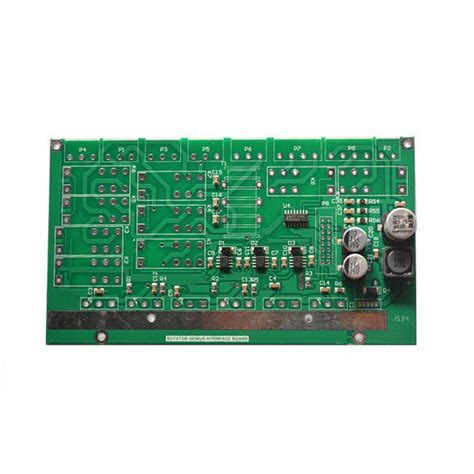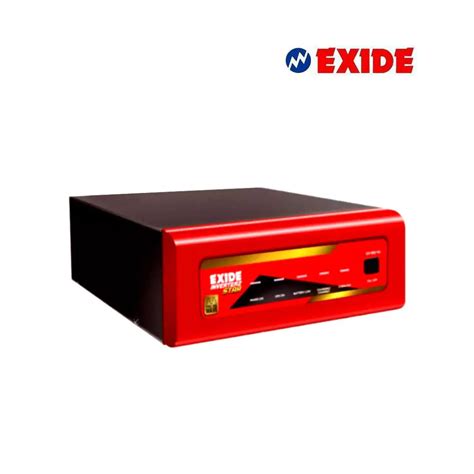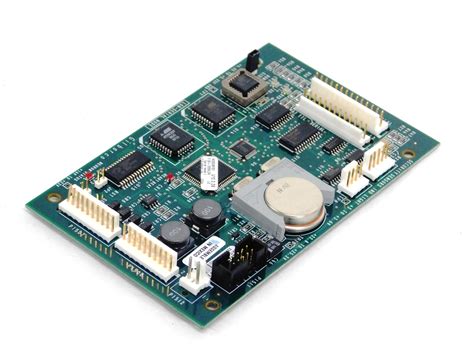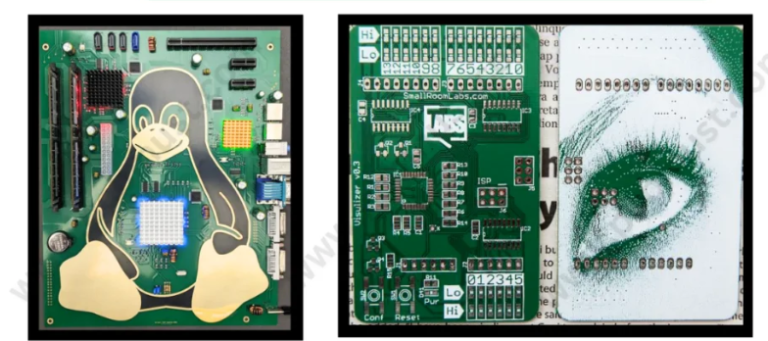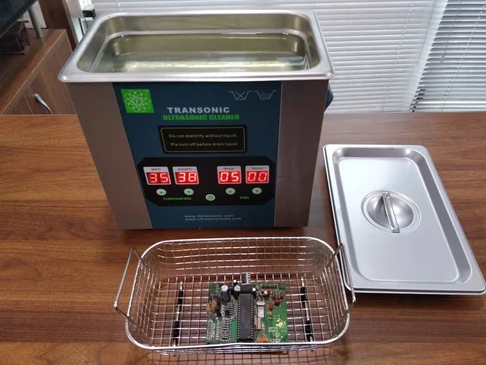Enhancing Innovation: Top Circuit Board Assembly Services Today
Key Takeaways
In recent years, pcb assembly services have witnessed significant advancements, driven by the escalating demands of modern technology. The move towards miniaturization and increased functionality in electronics has led to innovative techniques in pcba processes. By leveraging state-of-the-art technologies such as automation and advanced materials, leading providers have enhanced production efficiency while ensuring exceptional quality in every circuit board assembly. These services not only facilitate faster turnaround times but also improve reliability, which is crucial in sectors such as automotive and healthcare. Moreover, custom solutions are increasingly tailored to meet specific technological challenges, ensuring that manufacturers can keep pace with rapid market changes. This adaptability and focus on innovation in circuit board assembly highlight the essential role these services play in the broader landscape of electronic manufacturing. As the industry continues to evolve, it is evident that effective pcb assembly remains at the heart of successful technological advancements.
The Evolution of Circuit Board Assembly Services
Over the years, pcb assembly services have transformed significantly to adapt to the rapidly changing landscape of technology. The demand for pcba solutions has increased as industries seek enhanced performance and reliability. In the early days, circuit board assembly was a manual process, heavily reliant on skilled labor and limited tools. However, advancements in automation and robotics have led to higher precision and efficiency in assembly processes. Today, we see a shift towards smart manufacturing techniques that leverage artificial intelligence and machine learning for better quality control.
To understand this evolution better, one can look at a table summarizing key milestones:
| Year | Development | Impact |
|---|---|---|
| 1990 | Introduction of surface mount technology | Increased soldering efficiency |
| 2000 | Rise of automated assembly lines | Reduced labor costs |
| 2010 | Incorporation of AI in quality checks | Improved defect detection rates |
| 2020 | Customization capabilities | Tailored solutions for diverse industries |
The advances in pcb assembly not only optimize production timelines but also increase the scalability of operations. As manufacturers recognize the importance of efficiency and cost-effectiveness, many are adopting these modern techniques to remain competitive.
“In the world of electronics, staying ahead means embracing innovation at every level.”
With such significant shifts, businesses are better equipped to meet evolving customer needs and address challenges in real-time. Such enhanced capabilities underscore the vital role that pcba providers play in driving overall industry growth and technological advancement.
Key Innovations Transforming Circuit Board Manufacturing
The landscape of pcb assembly is undergoing significant transformation through numerous innovations aimed at enhancing both efficiency and effectiveness. One of the most noteworthy advancements is the integration of automation into pcba processes. This shift not only reduces human error but also accelerates production times, allowing manufacturers to meet the increasing demands of a fast-paced electronic market. Furthermore, the development of advanced materials and components has led to improved reliability in circuit board assemblies. These materials can handle greater stress and maintain functionality under a wider range of environmental conditions, which is crucial for modern electronics that are often used in varied applications.
Additionally, 3D printing technology is carving a niche in the manufacturer’s toolkit, enabling rapid prototyping and reducing waste during production. This innovative approach allows for more complex designs that were previously impractical, paving the way for custom solutions tailored to specific client needs. In line with this trend, software advancements have enhanced design capabilities through simulation tools that anticipate potential issues before production begins.
Collectively, these key innovations not only drive performance improvements in circuit board assembly services but also promote sustainability and adaptability within the industry. With these enhancements, manufacturers are better equipped to tackle technological demands, ensuring that they remain competitive while delivering high-quality products that meet customer expectations.
Leading Providers in Circuit Board Assembly: A Closer Look
In the competitive landscape of electronic manufacturing, several providers stand out in the realm of pcb assembly services, showcasing a commitment to quality, efficiency, and innovation. Companies specializing in pcba have embraced advanced technologies that streamline the manufacturing process, allowing for quicker turnaround times and enhanced reliability. Among these leading providers, we find those leveraging automation and sophisticated software solutions to improve precision during assembly. This evolution not only reduces production costs but also fosters the creation of highly complex circuits that cater to demanding specifications. Furthermore, these providers prioritize sustainable practices, ensuring that their manufacturing processes not only meet but often exceed industry standards for environmental responsibility. By focusing on client-customized solutions, they address the unique challenges faced across various sectors, paving the way for advancements that will drive future innovation in circuit board technology. With an emphasis on continuous improvement and adapting to technological trends, these companies remain pivotal in advancing pcb assembly services globally.
Enhancing Efficiency: Best Practices in Circuit Board Assembly
In the realm of pcb assembly, adopting best practices is crucial to enhance efficiency and ensure high-quality outcomes. One fundamental aspect is the streamlining of processes through automation. By integrating advanced technology such as robotics and AI, companies can significantly reduce human error and speed up production rates. Furthermore, maintaining an organized work environment fosters better workflow and minimizes downtime, promoting continuous production cycles. Another effective strategy is implementing rigorous training programs for personnel to ensure they are well-versed in both the technical aspects of pcba and the latest industry standards. This not only enhances skill sets but also instills a culture of quality consciousness.
Additionally, leveraging data analytics allows manufacturers to monitor performance metrics closely, identifying bottlenecks or inefficiencies in real-time. Tools that support this data-driven approach can help teams make informed decisions quickly, adapting practices as needed to maintain productivity levels. Together with regular maintenance of machinery and equipment—ensuring all components are operational—these practices contribute significantly to boosting overall efficiency in the manufacturing process. By embracing these techniques in circuit board assembly, businesses can meet growing demands while maintaining excellence in production quality.
Quality Control in Electronic Manufacturing: The Role of Assembly Services
In the realm of electronic manufacturing, maintaining quality control is paramount, especially in pcb assembly processes. Assembly services play a crucial role in ensuring that each component is accurately placed and securely connected on the circuit board, which directly affects the overall performance and reliability of electronic devices. By implementing rigorous quality assurance protocols, including automated inspection techniques such as Automated Optical Inspection (AOI) and X-ray analysis, top providers significantly enhance the integrity of their pcba solutions. This focus on quality not only elevates product standards but also reduces the risk of failures in end-user applications, leading to improved customer satisfaction. Additionally, fostering a culture of continuous improvement within assembly teams allows for regular updates to processes and technologies, adapting swiftly to ever-evolving industry demands. Ultimately, the emphasis on robust quality control systems within assembly services is essential for meeting both performance expectations and regulatory compliance in today’s competitive landscape.
Meeting Technological Demands: Custom Solutions in Circuit Board Assembly
In today’s rapidly evolving technological landscape, pcb assembly services have become essential for catering to diverse industry needs. Custom solutions in pcba enable manufacturers to meet specific requirements, ensuring that products not only align with current standards but also push the boundaries of innovation. As organizations strive for distinctiveness in a competitive market, the capability to tailor circuit board assemblies plays a pivotal role. With advancements in automation and design software, circuit board assembly processes are becoming more efficient, allowing for faster turnaround times while maintaining high standards of quality. Additionally, companies are increasingly integrating smart technologies and advanced materials in their pcb assembly practices, leading to enhancements in the performance and reliability of electronic devices. By prioritizing innovation and flexibility, leading assembly providers are paving the way for a new era of product development that meets the unique demands of various sectors, ultimately fostering growth and efficiency across multiple industries.
The Future of Circuit Board Assembly: Trends to Watch
As technology continues to evolve, the landscape of pcb assembly is experiencing significant transformations. One key trend is the increasing integration of automation and artificial intelligence in pcba processes, leading to higher efficiency and reduced production times. Companies are investing in smart manufacturing technologies that allow for real-time monitoring and adjustment of assembly lines, which enhances quality control and minimizes errors. Furthermore, the demand for miniature electronic devices is pushing providers to explore innovative methods for compact design layouts without compromising functionality. The shift towards sustainable practices in electronic manufacturing is also notable. Many assembly services are adopting environmentally friendly materials and waste-reduction techniques, aligning with global standards for sustainability. Finally, the customization of pcb assembly solutions is on the rise as different industries seek tailored approaches to meet their specific technological demands. As these trends unfold, top providers in circuit board assembly are continuously adapting, ensuring they remain at the forefront of innovation while meeting evolving market requirements.
Case Studies: Success Stories from Top Circuit Board Assembly Providers
In the world of pcb assembly, several providers have emerged as leaders, showcasing innovative solutions that have significantly shaped market dynamics. One notable case is a collaboration between a prominent pcba provider and a leading tech firm aiming to enhance product longevity and performance. By implementing advanced manufacturing techniques, such as selective soldering and automated optical inspection, they not only minimized defects but also achieved a remarkable reduction in production time. Another success story involves a healthcare company that partnered with a specialized circuit board assembly service to develop a new medical device. The provider utilized custom design strategies in their pcba process, resulting in a final product that met stringent regulatory standards while being delivered ahead of schedule. These examples highlight how effective collaboration and the adoption of the latest pcb assembly technologies are driving innovation, ensuring reliability, and maintaining high quality in electronic manufacturing. As industries continue to evolve, these providers will likely remain at the forefront, developing solutions that address today’s technological challenges.
Conclusion
The landscape of pcb assembly services is rapidly evolving, driven by innovations that enhance both efficiency and reliability in electronic manufacturing. As industries increasingly rely on sophisticated technology, the demand for high-quality pcba solutions grows proportionately. This growth emphasizes the need for providers to adopt cutting-edge techniques and implement best practices in circuit board assembly. By focusing on aspects such as automated processes and rigorous quality control measures, leading firms are not only meeting technological demands but are also setting new standards within the industry. The integration of advanced materials and microelectronics continues to push the boundaries of what is possible, ultimately fostering greater creativity and innovation across various sectors. As we look to the future, staying abreast of these trends will be crucial for businesses aiming to maintain a competitive edge in an ever-evolving marketplace.
FAQs
What are circuit board assembly services?
Circuit board assembly services, commonly referred to as pcb assembly, involve the process of assembling electronic components onto a printed circuit board (PCB). This service is essential for the production of various electronic devices, ensuring that components like resistors, capacitors, and microchips are securely and correctly placed on the PCB.
Why is choosing the right provider important for pcba?
Selecting a reputable provider for pcba is crucial as it directly impacts the efficiency, reliability, and overall quality of the electronic products. A leading service provider will utilize advanced technologies and best practices to ensure precision in the assembly process.
What advancements are shaping circuit board assembly today?
Recent advancements in circuit board assembly include automation technologies, real-time monitoring, and sophisticated surface-mount technology (SMT). These innovations enhance productivity while minimizing errors, which is vital in meeting rising industry standards.
How do quality control practices affect pcb assembly?
Quality control practices play a significant role in pcb assembly, ensuring that each product meets strict specifications. Effective quality checks at various stages of production help identify potential defects early and maintain high standards of reliability.
Can circuit board assembly services offer custom solutions?
Yes, many circuit board assembly services provide customized solutions tailored to specific project requirements. This flexibility allows businesses to improve product performance and adapt to changing market demands effectively.
For more information on pcb assembly, please click here.


